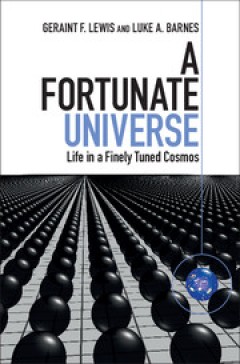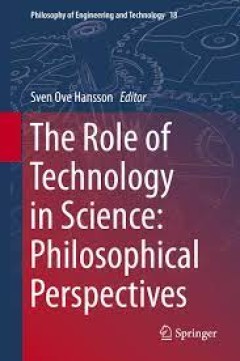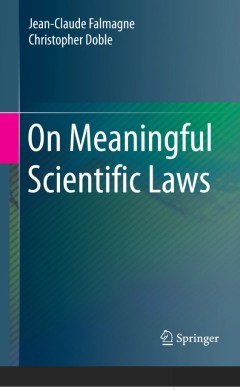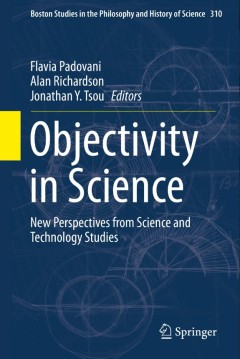Filter by

Recent Developments in the Philosophy of Science: EPSA13 Helsinki
This volume showcases the best of recent research in the philosophy of science. A compilation of papers presented at the EPSA 13, it explores a broad distribution of topics such as causation, truthlikeness, scientific representation, gender-specific medicine, laws of nature, science funding and the wisdom of crowds. Papers are organised into headings which form the structure of the book. Read…
- Edition
- 1
- ISBN/ISSN
- 978-3-319-23015-3
- Collation
- IX, 391
- Series Title
- European Studies in Philosophy of Science
- Call Number
- 101
Reductive Explanation in the Biological Sciences
This book develops a philosophical account that reveals the major characteristics that make an explanation in the life sciences reductive and distinguish them from non-reductive explanations. Understanding what reductive explanations are enables one to assess the conditions under which reductive explanations are adequate and thus enhances debates about explanatory reductionism. The account of r…
- Edition
- 1
- ISBN/ISSN
- 978-3-319-25310-7
- Collation
- XI, 277
- Series Title
- History, Philosophy and Theory of the Life Sciences
- Call Number
- 101

A Fortunate Universe Life in a Finely Tuned Cosmos
Over the last forty years, scientists have uncovered evidence that if the Universe had been forged with even slightly different properties, life as we know it - and life as we can imagine it - would be impossible. Join us on a journey through how we understand the Universe, from its most basic particles and forces, to planets, stars and galaxies, and back through cosmic history to the birth of …
- Edition
- -
- ISBN/ISSN
- 9781316661413
- Collation
- -
- Series Title
- -
- Call Number
- -

The Electric Theories of J. Clerk Maxwell
In this volume Pierre Duhem first gives an overview of 19th century electricity and magnetism. Next, he applies his keen historical, philosophical, and physical intuition to critiquing Maxwell’s theories, especially his electromagnetic theory of light and the ad hoc introduction of displacement current, which he considers too much a product of the “esprit de géométrie” than the “espri…
- Edition
- 1
- ISBN/ISSN
- 978-3-319-18515-6
- Collation
- XV, 185, 1 b/w illustrations
- Series Title
- Boston Studies in the Philosophy and History of Science
- Call Number
- -

The Unknown as an Engine for Science An Essay on the Definite and the Indefi…
This book explores the limits of our knowledge. The author shows how uncertainty and indefiniteness not only define the borders confining our understanding, but how they feed into the process of discovery and help to push back these borders. Starting with physics the author collects examples from economics, neurophysiology, history, ecology and philosophy. The first part shows how informatio…
- Edition
- -
- ISBN/ISSN
- 978-3-319-18509-5
- Collation
- -
- Series Title
- -
- Call Number
- -

The Theory of New Classical Macroeconomics A Positive Critique
This book examines new classical macroeconomics from a comparative and critical point of view that confronts the original texts and later comments as a first dimension of comparison. The second dimension appears in a historical context, since none of the new classical doctrines can be analyzed ignoring the parallelism and discrepancies with the theory of Keynes, Friedman or Phelps. Radicalism o…
- Edition
- -
- ISBN/ISSN
- 978-3-319-17578-2
- Collation
- -
- Series Title
- -
- Call Number
- -

The Shaping of Ambient Intelligence and the Internet of Things Historico-epi…
Recent advances in ICT have given rise to new socially disruptive technologies: AmI and the IoT, marking a major technological change which may lead to a drastic transformation of the technological ecosystem in all its complexity, as well as to a major alteration in technology use and thus daily living. Yet no work has systematically explored AmI and the IoT as advances in science and technolog…
- Edition
- -
- ISBN/ISSN
- 978-94-6239-142-0
- Collation
- -
- Series Title
- -
- Call Number
- -

The Role of Technology in Science: Philosophical Perspectives
This edited volume explores the interplay between philosophies in a wide-ranging analysis of how technological applications in science inform our systems of thought. Beginning with a historical background, the volume moves on to explore a host of topics, such as the uses of technology in scientific observations and experiments, the salient relationship between technology and mechanistic notions…
- Edition
- -
- ISBN/ISSN
- 978-94-017-9762-7
- Collation
- -
- Series Title
- -
- Call Number
- -

On Meaningful Scientific Laws
The authors describe systematic methods for uncovering scientific laws a priori, on the basis of intuition, or “Gedanken Experiments”. Mathematical expressions of scientific laws are, by convention, constrained by the rule that their form must be invariant with changes of the units of their variables. This constraint makes it possible to narrow down the possible forms of the laws. It is clo…
- Edition
- 1
- ISBN/ISSN
- 978-3-662-46097-9
- Collation
- XIII, 170
- Series Title
- -
- Call Number
- -

Objectivity in Science
This highly multidisciplinary collection discusses an increasingly important topic among scholars in science and technology studies: objectivity in science. It features eleven essays on scientific objectivity from a variety of perspectives, including philosophy of science, history of science, and feminist philosophy. Topics addressed in the book include the nature and value of scientific object…
- Edition
- 1
- ISBN/ISSN
- 978-3-319-14348-4
- Collation
- VI, 226
- Series Title
- Boston Studies in the Philosophy and History of Science
- Call Number
- -
 Computer Science, Information & General Works
Computer Science, Information & General Works  Philosophy & Psychology
Philosophy & Psychology  Religion
Religion  Social Sciences
Social Sciences  Language
Language  Pure Science
Pure Science  Applied Sciences
Applied Sciences  Art & Recreation
Art & Recreation  Literature
Literature  History & Geography
History & Geography